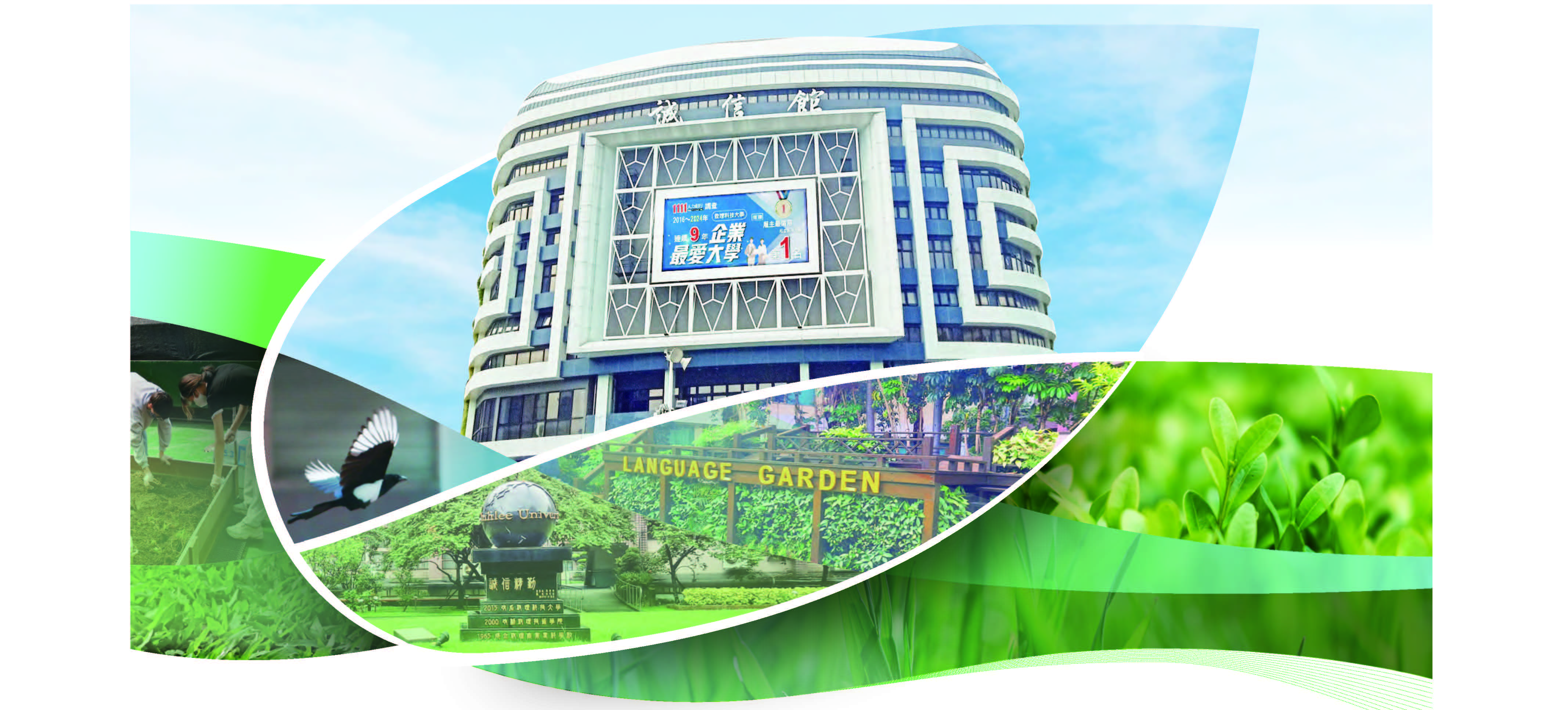

Chihlee University of Technology is committed to creating a low-carbon campus environment through various measures, including the implementation of an intelligent energy-saving management system, contract demand control, air conditioning equipment monitoring and load shedding, and classroom power management based on class schedules. The University also proactively addresses energy consumption issues by enhancing management and education, replacing energy-efficient lighting fixtures, upgrading streetlight control systems, managing classroom air conditioning, replacing outdated chillers and air conditioning units, and installing elevator regenerative braking energy recovery systems and heat pump systems. In addition, the University has applied for campus green building certification and implemented a range of concrete actions to achieve effective campus energy conservation.



Water Resource Management
To effectively manage water consumption and enable real-time leak detection, the University utilizes monitoring systems that provide realtime analytical reports, allowing for the timely monitoring of water usage in each building. This facilitates immediate repairs, reducing water shortages or waste caused by equipment malfunctions. Regular maintenance and equipment upgrades are also carried out. All water fixtures in campus buildings are equipped with water-saving devices. Rain sensors have been installed on athletic field sprinkler systems to prevent irrigation during rainfall, minimizing water waste. In addition, rainwater recycling systems are utilized. Urinals are fitted with automatic flushers, faucets are equipped with water-saving devices, and landscape irrigation is gradually being converted to automated drip irrigation systems with timers. This not only reduces manpower but also significantly conserves water.

Green Irrigation and Rainwater Management
The University maintains extensive lawns and green spaces, with approximately 1.64 hectares of green coverage on the Banqiao Campus and about 0.72 hectares on the Second Campus. To conserve water resources and reduce maintenance costs, automated irrigation systems are managed through environmental control systems with scheduled watering times. In addition, rainwater harvesting systems are integrated to reduce tap water consumption. These measures effectively maintain campus greening efforts and support sustainable development.
Waste Reduction and Management
To enhance environmental sanitation, the University implements scheduled and fixed-location waste collection on campus and promotes resource recycling and waste separation to increase the recycling rate. Chihlee University of Technology collaborates with the Banqiao District cleaning team and recycling companies to carry out waste reduction and resource recycling initiatives. A database for regular statistical tracking of recyclable and general waste volumes has been established, enabling the University to analyze and compare data across periods and better understand the consumption patterns of faculty and students on campus.

Recycling Management
The University carries out the collection, cleaning, and sorting of recyclables such as paper, plastic, aluminum and iron cans, and PET bottles. Contracted recycling vendors regularly collect and process these materials, with the University receiving resource rebates in return. The procedures are as follows:
1. Dedicated trash and recycling bins, as well as food waste containers, are placed in prominent locations at the entrance of each building and along main campus roads. These bins are regularly maintained, clearly labeled, and well-organized for effective sorting.
2. Each floor of every building has designated personnel responsible for collecting garbage and food waste three times daily. The flow of waste is tracked by category to ensure proper waste management and recycling operations.
3. The University purchases dedicated garbage bags from New Taipei City for waste packaging. The Banqiao Cleaning Team collects waste—including food waste—from campus five times per week, with daily records kept of the previous day’s waste volume.
4. Battery recycling bins are installed in the Zhongxiao Building and the FamilyMart convenience store on campus, with a total of 20 kilograms of used batteries collected in 2024.
